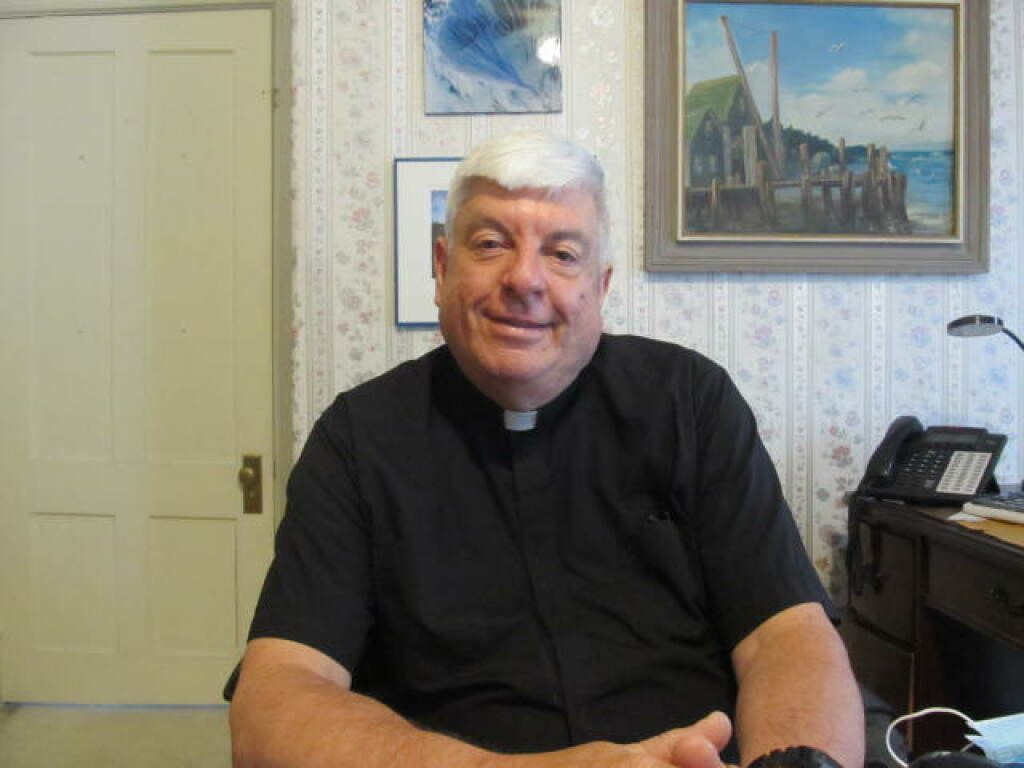 The story of a first-century woman who prevailed
The story of a first-century woman who prevailed
There is a story of a young girl who was depressed because she was not beautiful. She was discouraged, but as she grew older, her attitude changed. “I realized that not being beautiful was actually a blessing in disguise,” she said. “It forced me to develop inner resources and strength. I came to understand that women who can’t lean on their beauty must work harder to have an advantage.”
That young girl, named Gola Meir, went on to become the first woman prime minister of Israel. She not only accepted herself, but rejoiced in who she was.
Now, we’ll get back to the story, but first I want to talk about Jesus in today’s gospel. For those who have come to know and appreciate Jesus as a loving Savior, this gospel is disturbing. He apparently shows prejudice in the demeaning and belittling way in which he talks to this woman.
Now, Scripture scholars have come up with theories as to what’s going on in this passage, and why it’s even in the Gospel! Some say that, at first, Jesus’ mission was indeed limited to the Jewish people, and only later did it spread out to non-Jews. Others argue that Jesus was simply testing the woman’s faith, to see how much she believed in him and his power to save. Others suggest that this passage relates to a story Jesus tells about the need for perseverance in prayer. He said that there was a needy woman who was not given her rights by a corrupt judge. She hounded him day and night. At first, he even refused to acknowledge her. But finally, he concluded that the widow was going to do something violent to him, so he responded affirmatively to her need. Jesus concludes that, if a corrupt judge can take care of someone who perseveres, how much more this is the case with God, who is just and compassionate. So, the point of the story is to persevere in prayer, to ask and we shall receive, to seek and we shall find, to knock and the door will be opened.
But now I turn back to the woman who has this encounter with Jesus, as described by Matthew. First, she appears to know exactly who Jesus is and what he can do, calling him “Lord, Son of David.” Then, we learn that she’s not asking for herself; she’s seeking healing of her daughter. And, when Jesus is not receptive, she continues, arguing with Jesus toe to toe—using humility and humor (“even the dogs eat the scraps that fall from the table of their masters”).
Now, as I read this gospel, I find myself admiring this woman, who is like a first-century version of Golda Meir. She’s got spunk, she’s got spirit, she’s used to arguing her point of view, and she prevails. And Jesus marvels, rejoices and celebrates what he sees as the defining characteristic of this woman: “O woman, great is your faith! Let it be done for you as you wish.” And the whole episode teaches two important points. First, Jesus has the power to heal (“And the woman’s daughter was healed from that hour”). And second, salvation can no longer be limited to only one group, one ethnicity, one color, one political orientation. Most importantly, it will not be limited to the people who are beautiful and perfect and self-satisfied in their own righteousness. From this point forward, these barriers are smashed, and we Christians are called, not to build walls to separate the deserving from the undeserving. We are called to go beyond the boundaries (Jesus went to Tyre and Sidon—which would fall in modern- day Lebanon). We are called to build bridges. And if the bridges feel hard to build, we have the example of this nameless woman in today’s gospel, this first-century Golda Meir.
You might also like
Father's Homilies




